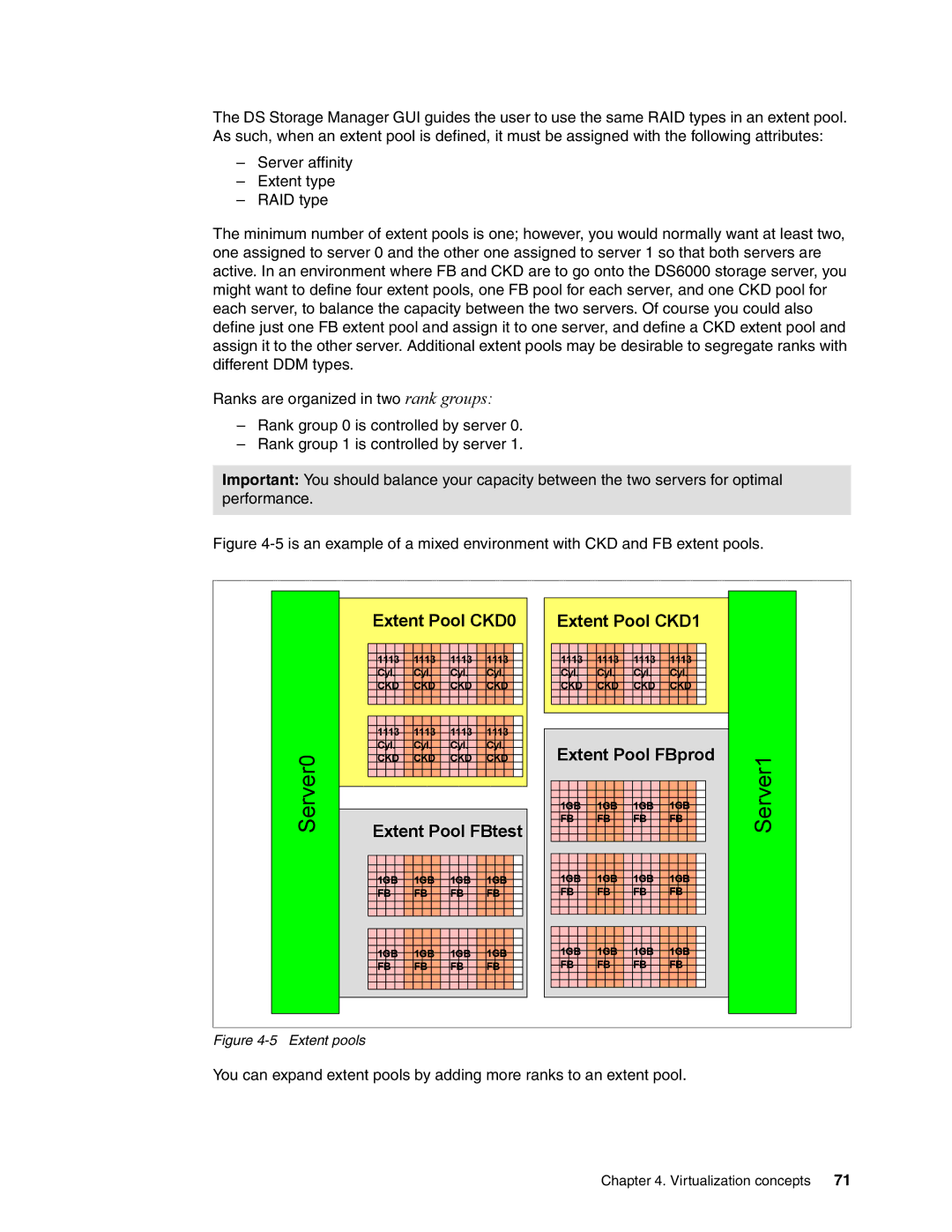
The DS Storage Manager GUI guides the user to use the same RAID types in an extent pool. As such, when an extent pool is defined, it must be assigned with the following attributes:
–Server affinity
–Extent type
–RAID type
The minimum number of extent pools is one; however, you would normally want at least two, one assigned to server 0 and the other one assigned to server 1 so that both servers are active. In an environment where FB and CKD are to go onto the DS6000 storage server, you might want to define four extent pools, one FB pool for each server, and one CKD pool for each server, to balance the capacity between the two servers. Of course you could also define just one FB extent pool and assign it to one server, and define a CKD extent pool and assign it to the other server. Additional extent pools may be desirable to segregate ranks with different DDM types.
Ranks are organized in two rank groups:
–Rank group 0 is controlled by server 0.
–Rank group 1 is controlled by server 1.
Important: You should balance your capacity between the two servers for optimal performance.
Figure 4-5 is an example of a mixed environment with CKD and FB extent pools.
Server0
Extent Pool CKD0
1113 | 1113 | 1113 | 1113 |
Cyl. | Cyl. | Cyl. | Cyl. |
CKD | CKD | CKD | CKD |
1113 | 1113 | 1113 | 1113 |
Cyl. | Cyl. | Cyl. | Cyl. |
CKD | CKD | CKD | CKD |
Extent Pool FBtest
![]() 1GB
1GB ![]() 1GB
1GB ![]() 1GB
1GB ![]() 1GB
1GB
FB FB FB FB
1GB | 1GB | 1GB | 1GB |
FB | FB | FB | FB |
Extent Pool CKD1
1113 | 1113 | 1113 | 1113 |
Cyl. | Cyl. | Cyl. | Cyl. |
CKD | CKD | CKD | CKD |
Extent Pool FBprod
1GB | 1GB | 1GB | 1GB |
FB | FB | FB | FB |
1GB | 1GB | 1GB | 1GB |
FB | FB | FB | FB |
1GB | 1GB | 1GB | 1GB |
FB | FB | FB | FB |
Server1
Figure 4-5 Extent pools
You can expand extent pools by adding more ranks to an extent pool.
Chapter 4. Virtualization concepts | 71 |
